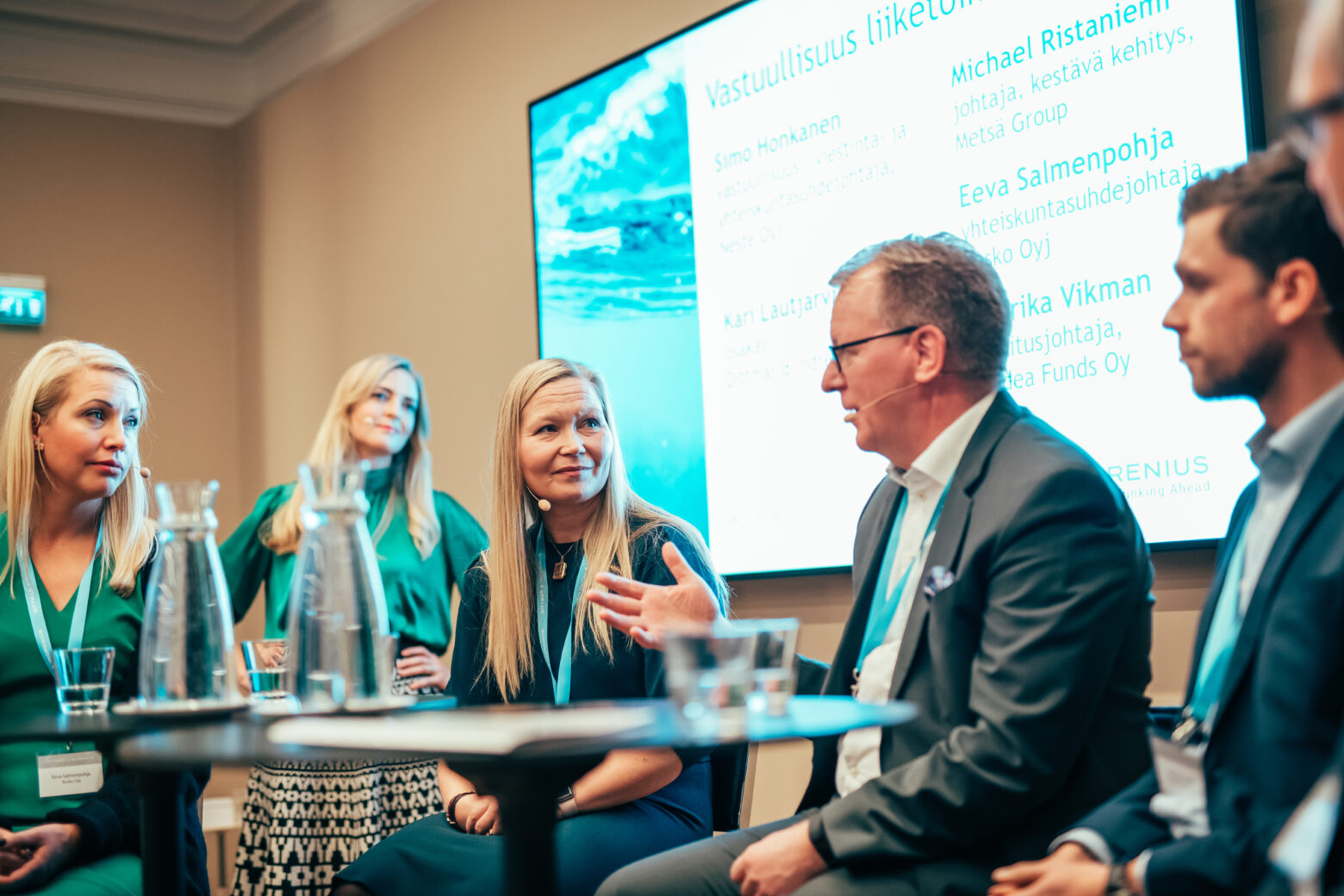On November 26th we organised a seminar “Creating Sustainable Value” for a full house of guests on sustainability as a strategic choice and mode of operation in business and the evolving legal framework relating thereto.
Minimum Level
We started with looking at sustainability strategies and actions that go beyond compliance with evolving regulations. All agreed that applicable hard laws and regulations set the minimum level but the minimum level is not enough to survive, nor thrive through differentiation.
When discussing EC taxonomy and other regulative initiatives, the panelists agreed that regulation as such is necessary for preventing the negative impacts that companies have on their environment in a broad sense. The better the regulation and the clearer the legal framework overall, the easier to report and the easier to compare and evaluate companies.
What is good regulation then? Neutral, long-term, transparent, consistent. Like any business decision, regulation should always have a clear objective, a target. However, it was pointed out that the relationship between regulation, practical consequences of complying with it and the following business decisions that would have the intended impact on the common good is not always self-evident.
All panelists agreed on the importance of thinking ahead and organising internally in a manner that supports being awake to the legislative initiatives. It was seen extremely important to be involved already in the white paper –phase in initiatives that may impact investments that are typically made for long periods of time.
Adapting to Change
In today’s world of business, sustainability is a much wider concept than it was 5-10 years ago. It used to be enough to talk about emissions and the company’s initiatives to lower them. Today the thinking goes beyond environmental and is also about social and governance.
How to balance various sustainability initiatives on all fronts: E, S and G? How to organise responsibilities, reporting lines and operative decision-making? How to identify new possibilities and make sure that innovation power within the company is used correctly? How to build a company culture that supports sustainable decision-making?
There was a strong consensus on sustainability being integrated with all business operations and on how sustainability should be the mandate of the entire organisation. However, everyone agreed that it begins with the leadership and especially top management, legal function included
In the context of digital transformation, it’s not only about technology but about people. Similarly, making existing products and services more sustainable may be enough for adapting with the times but “pre-sustainability mind-set” will not be enough for companies to thrive. People want to be employees and customers of companies that are acting responsibly in all fronts. Investors want to invest in industries and companies where people want to be employees and customers.
The Greta Thunberg phenomenon, social media and the increasing role of consumers as stakeholders have had and will continue to have an immense impact on the companies’ strategic choices and mode of operation. From the legal point of view, one of the key questions is the extent to which company’s management should and is allowed to consider the interests of other stakeholders as they seek to promote the interests of their company and its shareholders.
To continue these discussions , the panelists will convene for a Part 2 of “Creating Sustainable Value ” -seminar during Q1 2020.

The company’s stakeholders and wider operating environment are increasingly relevant to determining what constitutes the most appropriate approach to ensuring the company’s long-term profitability. In this context, the purpose of a company to generate profit can be considered a normative goal that sets an objective for the management but it does not determine the means for achieving it.
According to Partner Kari Lautjärvi, in order to promote the interests of the company, the management must continuously develop the company’s business and thus ensure its long-term viability, which in turn enhances the company’s ability to generate profit. In this context, the management must operate in accordance with the principle of sustainable development and in line with all aspects of its corporate social responsibility commitment.
According to Lautjärvi, the title and contents of the Limited Liability Companies Act 1:8 should be clarified so that in addition to the management’s duty of care, their duty of loyalty is separately written into the law. This would not only clarify the two-parted nature of the management’s duties, but it would also highlight the duty of loyalty principle even more as an independent general principle of the Limited Liability Companies Act.
Additionally, more detailed contents of the duty of loyalty, what it protects and especially the contents and scope of the corporate benefit should be defined in the law itself being changed or in its preliminary work. In this context, the tangible connection between the duty of loyalty, the going concern principle , and the corporate social responsibility could be more clearly expanded upon.
